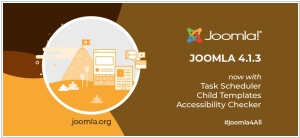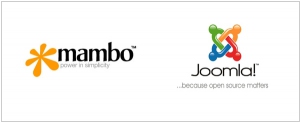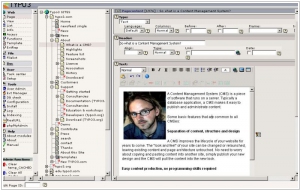Joomla vs TYPO3
May 17, 2023 | Author: Michael Stromann
Joomla and TYPO3 are both powerful and widely-used content management systems (CMS) with their own distinct features and strengths. Joomla is known for its user-friendly interface, extensive template library, and large community support. It is a versatile CMS suitable for individuals, small businesses, and non-profit organizations that prioritize ease of use and a good balance between simplicity and functionality.
On the other hand, TYPO3 is an enterprise-level CMS that focuses on scalability, complex content management, and advanced customization options. It is favored by large organizations that require extensive content management capabilities, multi-language support, and robust workflows. TYPO3 offers a wide range of features and customization options, making it suitable for complex web projects and multi-site management.
See also: Top 10 Enterprise Portals
On the other hand, TYPO3 is an enterprise-level CMS that focuses on scalability, complex content management, and advanced customization options. It is favored by large organizations that require extensive content management capabilities, multi-language support, and robust workflows. TYPO3 offers a wide range of features and customization options, making it suitable for complex web projects and multi-site management.
See also: Top 10 Enterprise Portals
Joomla vs TYPO3 in our news:
2022. Joomla recommends to upgared to 4 version

Joomla, the free and open-source CMS designed for publishing web content, has recently launched two new versions: Joomla 4.1.3 and 3.10.9. These updates include bug fixes and various enhancements, such as the addition of a task scheduler, child templates, and an accessibility checker. Built on the model-view-controller architecture, Joomla allows users to develop powerful online applications independently of the CMS, providing the flexibility to create dynamic websites. The latest CMS version, Joomla 4.1.3, empowers users to build websites that can scale and adapt to their evolving needs. While Joomla 3.10 can still be used for new projects, the Joomla team strongly recommends utilizing Joomla 4 for its improved features and capabilities. As Joomla 3.10 is approaching its End of Support (EOS), with less than six months remaining for bug fixes and one year for security fixes until August 17, 2023, users are encouraged to transition to the newer 4.x version. Joomla 4.x, available for nearly a year now, offers numerous enhancements and leverages the latest production versions of PHP, enhancing both the security and performance of websites.
2005. IBM bemoans Joomla-Mambo split

A senior IBM software executive expressed disappointment regarding the Mambo open-source publishing software project and the subsequent emergence of the Joomla project, wherein the developers migrated with the source code. In an interview on Tuesday, Rod Smith, Vice President of Emerging Internet Technology for IBM's Software Group, remarked that it is unfortunate for both the Mambo project and its customers. He noted that the company overseeing Mambo seemed to have veered off course, prioritizing its own interests over those of the open-source community. Smith considered this to be a negative development as Mambo had gained significant traction, and the creation of the Joomla fork undermines its progress. The conflicts arising from such situations are particularly unwelcome among corporate customers. Smith clarified that these customers are not apprehensive about open-source software itself, but they are concerned about the repercussions seen in the Mambo case. Should a similar scenario unfold, it would entail considerable rework and inconvenience for these customers.




